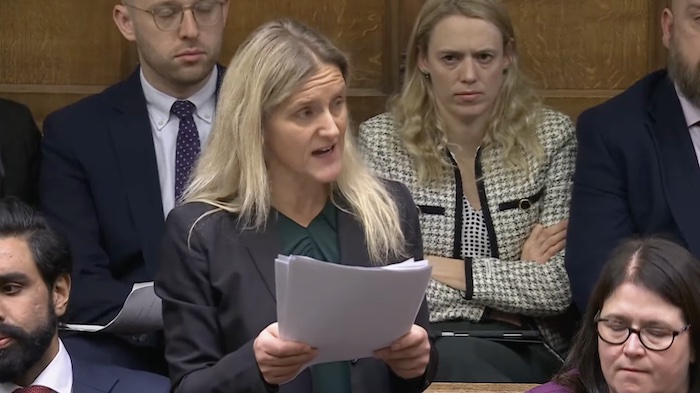What are MPs actually debating today? Some of them seem a bit confused. We have had two hours so far of the debate on the second reading of Kim Leadbeater’s Terminally Ill Adults (End of Life) Bill, and a number of them seem to be talking about entirely different things. Some are poring over the detail of the legislation, with Leadbeater pointing to the safeguards she has had written into it, and Danny Kruger arguing that some of the definitions of the people who can act as a proxy for patient are too loose, meaning that there is still a risk of abuse of the legislation. But then, there have been others who have wanted to argue about the principle of the legislation, rather than what is written in it.
A classic example came from Layla Moran, chair of the health select committee. She is in favour of the bill, though didn’t want to talk about it in detail. Instead, she said:
I will be voting for this bill today because I want this conversation to continue now… there will be members who will be making the moral case today, and I want to hear them, but to those MPs who might be minded to vote for it on principle but are worried about the details about how we might change a word here, or the role of clinicians or MPs, or whatever it may be, may I urge them to reconsider the question they’re asking themselves today. This is the second reading the media is asking all of us, are you for or against this bill? I would urge you to think of this question differently. The question I think we and I will be answering today is, do I want to keep talking?
She was interrupted by James Cleverly, who objected that ‘we are talking about the specifics of this bill. This is not a theoretical discussion, it is about the specifics of the bill’. Moran replied that his query about why the bill was being denied to children if it was a positive should be ‘put in bill committee at later stages’. This is a misreading of the legislative process, but it is entirely understandable within the context of the way MPs normally approach legislation. Their arguments throughout tend to be about the principles at stake, not the drafting of something they’ve never read. They rarely consider the details of what is written, because they rarely need to: when following a party whip, they have the luxury of being able to trust that someone else has thought about the specifics. Today, they are all alone and having to make up their own minds.
The impact of being left to make up their minds has had a galvanising effect on MPs
In general, the impact of being left to make up their minds has had a galvanising effect on MPs. Their speeches so far have largely been very good and considered on both sides. Some have drawn on their own expert experience from working in the healthcare sector: once again, both in support of and in opposition to the bill. The speeches have also been very moving, as you would expect. All MPs have cited examples of people at the end of their lives to back up their arguments in favour and against the legislation. There have been some quite tender moments where a member has grown emotional while talking about a loved one, and a colleague has intervened on them to give them a chance to collect themselves.
Leadbeater also tried to emphasise that she wanted as much scrutiny as possible in the following stages, saying she was minded to move an amendment that would allow the bill committee to take evidence from experts. Others argued that if parliament defeated this legislation again today, it would be another ten years before parliament had a chance to debate this. Some opponents, such as Rachael Maskell, tried to repeat the framing of the debate back in 2015, which was that if MPs couldn’t conclude beyond reasonable doubt that this was a safe bill, they should vote against. The view of the Commons is not clear yet from the speeches, and neither is it fully clear that everyone speaking understands what they are supposed to be doing.
Watch more on SpectatorTV:







Comments